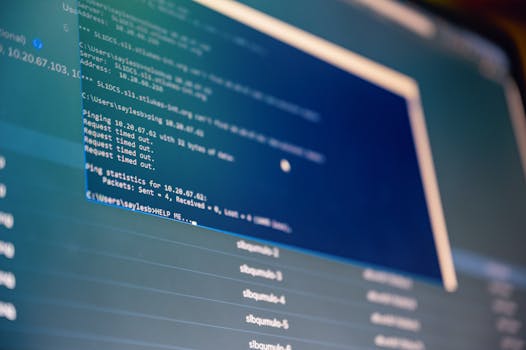Effective File Management Strategies for Digital Clutter
Eighty percent of adults in the United States feel stressed by digital overload, with an increasing sense of frustration tied to mismanaged digital files. These startling figures from a Pew Research study underscore the pervasive issue of digital clutter that affects most of us. Scouring through mountains of disorderly data not only eats up valuable time but can also impact mental health.

Why does organizing digital files make such a compelling difference in our professional and personal lives? To get clarity on this, I reached out to Sarah Brooks, a professional organizer who specializes in digital spaces. "An efficient file management system transcends simple tidiness; it's about elevating productivity and reducing stress," she explains.
Understanding the Impact of Digital Clutter
Digital clutter can manifest in numerous ways – a desktop littered with random files, a downloads folder bursting at the seams, or an email inbox that resembles a bottomless pit. The consequences? Lowered productivity, increased anxiety, and the potential loss of important data. Picture this: crucial documents misplaced amidst irrelevant junk can derail your workflow significantly.
Strategies for Effective File Management
| Strategy | Benefit |
|---|---|
| Regular Audits | Keeps data relevant and manageable |
| Adopt Cloud Storage | Access files anywhere and reduce local storage needs |
| Implement Naming Conventions | Streamline searches and retrieval times |
| Create Folder Hierarchies | Organize files logically and intuitively |
- Regular Audits: Set a monthly or quarterly schedule to review and purge unnecessary files. This regular maintenance prevents buildup and keeps your digital spaces navigable.
- Naming Conventions: Create a consistent method for naming your files. This might include dates, project names, or version numbers, which can dramatically speed up your search and retrieval times.
- Hierarchical Folder Structures: Structuring your folders in a logical hierarchy will help in categorizing the data neatly. For instance, within a main folder titled 'Projects,' have subfolders for each project named after the year or client.
- Embrace Cloud Storage: Utilizing services like Google Drive, Dropbox, or OneDrive helps in accessing your files from any device. Furthermore, it eliminates the fear of data loss due to hardware problems.
Incorporating these practices into your routine isn't just about tidying up; it's a proactive approach to managing stress associated with disorderly digital environments. CEO Jane McGonigal of Gameful.org shared that after reorganizing their digital resources, their team saved an average of four hours per week previously lost to searching for files.
Making It Stick: Practical Tips to Cultivate Habits for Better File Management
Cultivating new habits is often perceived as daunting. Embedding small changes incrementally can fortify the longevity of organized digital habits:
- Start small: If you're overwhelmed, begin with your desktop. Spend 10 minutes each day sorting through files and folders before diving into work.
- Maintain discipline: Regularity is key. Similar to brushing your teeth twice a day, make file management part of your daily routine.
- Reward progress: Celebrate small victories. An uncluttered workspace deserves recognition , perhaps treat yourself to a coffee after a successful clean-up session.
- Use tools: Don't shy away from technology intended to simplify management. Apps like Evernote for note-taking or Trello for task management can also serve as excellent repositories for keeping miscellaneous files in check.
These strategies have profound implications for workplace efficiency too. Organized digital spaces ensure swift access to required materials, promoting not just individual but also collective productivity.
Moving Forward -Fewer Files, More Focus
"When everything is neatly arranged, there's simply less cognitive load demanding your attention away from where it truly matters," concludes organizational expertSarah Brooks. As we strive towards digital minimalism, remember that every small step taken is a stride towards better mental clarity and efficiency.
To further explore file management techniques or engage with professionals who can tailor strategies specific to your needs take action today by visiting organizing consultants online or participate in workshops focusing on digital productivity.